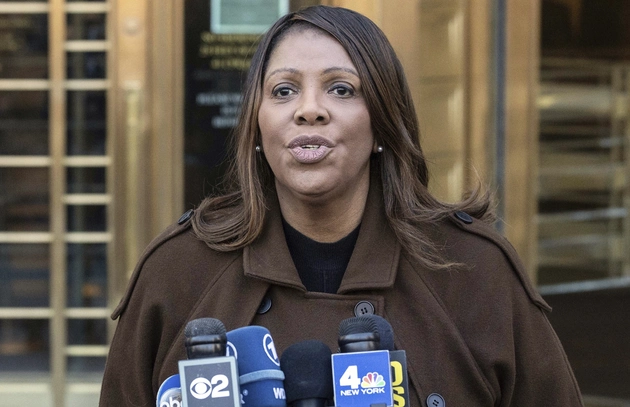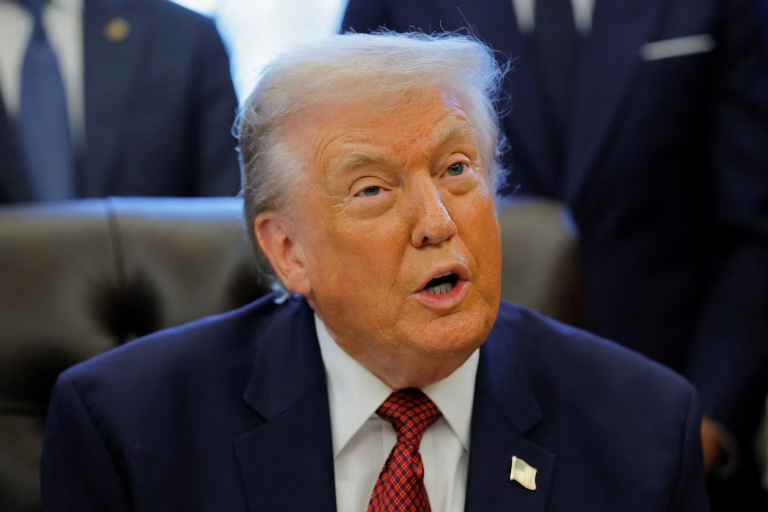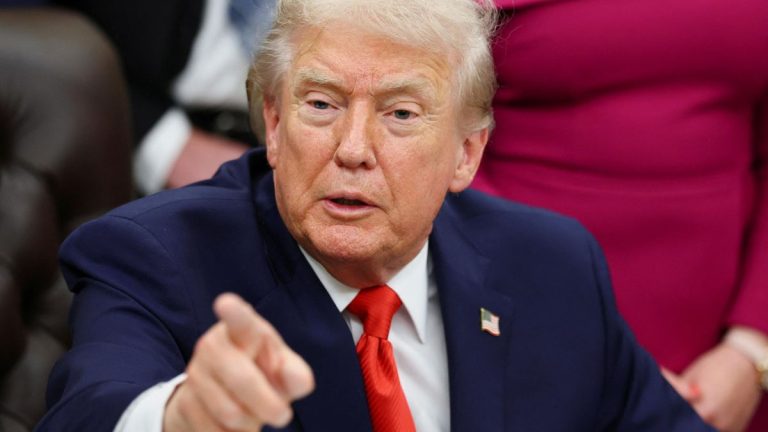NORFOLK, Va. — A veteran federal prosecutor in Virginia has been dismissed after objecting to the filing of mortgage fraud charges against New York Attorney General Letitia James, amid questions over the handling of internal case documents and growing concerns about political pressure inside the Department of Justice.
According to sources familiar with the matter, prosecutor Beth Yusi was terminated earlier this month following an internal review related in part to the transmission of sensitive investigative materials. The episode has drawn significant attention from legal observers and lawmakers, who view it as a potential flashpoint in ongoing debates about the independence of federal prosecutors.
CNN first reported that Yusi allegedly forwarded investigative documents — including material containing James’s personal information — to her private email account. The network cited internal communications reviewed by its reporters and sources with knowledge of the situation.
Yusi’s attorney, Margaret Donovan, disputed the allegation, calling it “completely inaccurate” and “unsupported by any evidence.”
“Ms. Yusi has no record of any such email and has never used her personal email account for any portion of any investigation,” Donovan said. “She is a well-respected prosecutor, a leader among her peers, and a consummate professional with nearly two decades of experience.”
Internal Dispute Over Evidence
Before her removal, Yusi reportedly authored an internal memorandum outlining the Virginia office’s view that there was insufficient evidence to support criminal charges against James. That document, according to multiple individuals familiar with the matter, circulated among senior prosecutors but was not shared with the U.S. Attorney who ultimately oversaw the case’s presentation to a federal grand jury.
The memo has since become a focal point of controversy, with critics arguing that the Justice Department may have sidelined internal dissent in a politically sensitive case.
Department officials, however, have rejected those suggestions. A DOJ spokesperson told CNN that the office followed standard procedures and that personnel decisions were based solely on internal conduct, not case disagreements.
Background on the Case Against Letitia James
New York Attorney General Letitia James was indicted earlier this month on two federal counts: one of bank fraud and one of making false statements to a financial institution.
Prosecutors allege that James misrepresented information to secure favorable loan terms during the purchase of a second home in Norfolk, Virginia, in 2020. Each charge carries a potential maximum penalty of 30 years in prison.
James appeared in federal court on Friday for arraignment, where she pleaded not guilty to all charges. Her trial is scheduled for January 26, 2026.
In a statement following the arraignment, James denounced the case as politically motivated:
“This is nothing more than a continuation of the president’s desperate weaponization of our justice system,” she said. “These charges are baseless, and the president’s own public statements make clear that his only goal is political retribution at any cost.”
Tensions Inside the Justice Department
According to reporting from multiple outlets, including CNN and Fox News, the case has highlighted friction within the Eastern District of Virginia’s U.S. Attorney’s Office. Several career prosecutors reportedly voiced objections to moving forward with the indictment, and at least two have since been dismissed or resigned.
The office is currently led by U.S. Attorney Lindsey Halligan, a Trump administration nominee who assumed the position after interim U.S. Attorney Erik Siebert resigned earlier this year amid disagreements over the pace and direction of politically sensitive investigations.
CNN reported that Halligan personally presented the case against James to the grand jury. The network also said that Halligan had expressed concerns that some prosecutors in the office were leaking “unauthorized” information to the media, prompting an internal review that eventually contributed to Yusi’s dismissal.
The Leaked Memo Allegation
At the center of the controversy is the claim that Yusi improperly sent an internal memo and case documents to her personal email account. The materials reportedly included sections of investigative notes and references to confidential witness information.
While such an action would not necessarily constitute a crime, it would violate Justice Department policy prohibiting the storage of investigative material outside secure federal systems.
Legal experts note that DOJ’s internal standards on case confidentiality are strict, particularly in politically charged cases. “It’s not uncommon for the department to take administrative action even in the absence of criminal wrongdoing,” said a former federal ethics official familiar with similar reviews.
Yusi’s attorney has maintained that the allegations are unfounded and that her client’s dismissal followed a dispute over prosecutorial discretion rather than a policy breach.
Questions of Political Influence
The case has intensified scrutiny of the Justice Department’s handling of investigations involving prominent political figures. In recent months, federal prosecutors have pursued multiple high-profile cases against individuals with ties to or positions opposing the current administration.
Critics of the department, including several Republican lawmakers, have alleged that prosecutors are facing improper political pressure to pursue cases aligned with the president’s interests. DOJ officials have consistently denied those claims, emphasizing that charging decisions are made independently by career staff.
Still, the firing of a senior career prosecutor following a policy disagreement has fueled fresh debate about the balance between political oversight and prosecutorial independence.
“This kind of internal conflict raises questions about whether the department’s culture is shifting toward political sensitivity rather than pure legal judgment,” said a former U.S. attorney who spoke on condition of anonymity.
Timeline of Key Events
-
September 2025: President Trump announces his intent to nominate Lindsey Halligan as U.S. Attorney for the Eastern District of Virginia. Interim U.S. Attorney Erik Siebert resigns shortly thereafter, reportedly amid tension over the pace of politically sensitive investigations.
-
Early October 2025: Prosecutor Beth Yusi circulates an internal memo recommending against charging Letitia James, citing insufficient evidence.
-
Mid-October 2025: A grand jury indicts James on two counts.
-
Late October 2025: Yusi is dismissed from her position following an internal review.
-
October 24, 2025: Letitia James pleads not guilty in federal court in Norfolk.
Impact on the DOJ and Future Proceedings
The dismissal of Yusi and the indictment of James come as the Justice Department faces increasing calls for transparency in politically sensitive prosecutions. While officials maintain that standard procedures were followed, the episode has prompted renewed demands from both parties for congressional oversight.
Legal analysts say that if the memo Yusi authored indeed raised concerns about insufficient evidence, defense attorneys could attempt to reference it during pretrial motions. However, internal DOJ communications are typically protected under privilege and rarely disclosed.
“Defense counsel may seek to use the existence of that memo to challenge the credibility of the prosecution, but they’re unlikely to gain access to the full document,” said a former federal defense attorney. “The larger issue is perception — whether the public believes this case was handled fairly.”
Next Steps in the Case
James’s legal team has indicated plans to file motions seeking to dismiss the indictment on grounds of selective prosecution. The defense is also expected to challenge the admissibility of certain financial records obtained during the investigation.
The court has not yet ruled on pretrial motions, but proceedings are expected to begin early next year, with jury selection scheduled for late January.
For the Justice Department, the outcome could carry implications beyond the James case itself — potentially influencing public confidence in how politically sensitive investigations are managed.
As one former DOJ official put it:
“The optics here are as important as the law. If the public believes that internal dissent leads to firing, it undermines the department’s reputation for impartial justice.”

Sarah Mitchell is a bestselling novelist recognized for her insightful and emotionally resonant stories that explore the complexities of human relationships. Originally from Denver, Colorado, Sarah grew up in a family of teachers who nurtured her curiosity and love for storytelling. She studied psychology at Stanford University, where she became fascinated by the intricacies of human behavior—an interest that would later shape her writing career. Sarah’s novels are praised for their nuanced characters, intricate plots, and ability to capture the subtle tensions that define love, friendship, and family ties. Her breakthrough novel, The Spaces Between Us, became an instant bestseller, lauded for its honest portrayal of strained family relationships and the fragile bonds that hold people together. Since then, she has published several works that continue to captivate audiences around the world. Outside of her writing career, Sarah is passionate about mental health advocacy and often partners with organizations to promote awareness and support for those struggling with emotional well-being. Her personal life is quieter—she enjoys hiking in the Colorado mountains, practicing yoga, and spending time with close friends. With each new book, Sarah Mitchell cements her reputation as a writer who illuminates the beauty and struggles of human connection.









